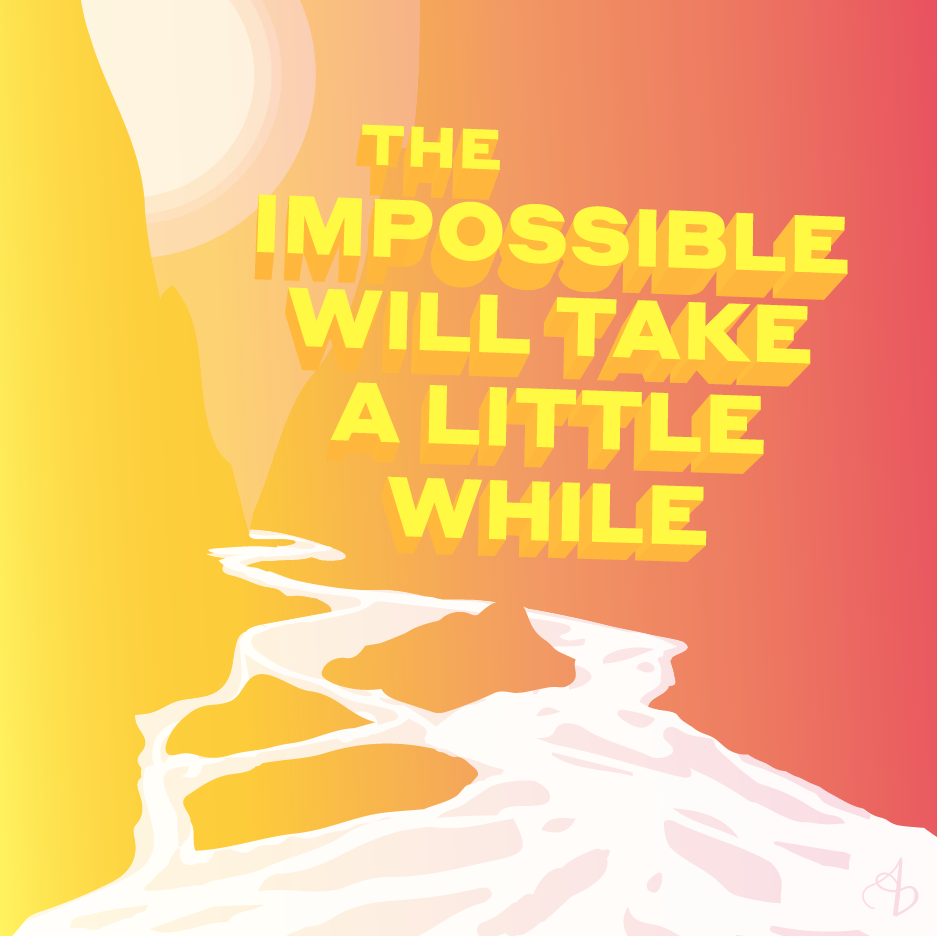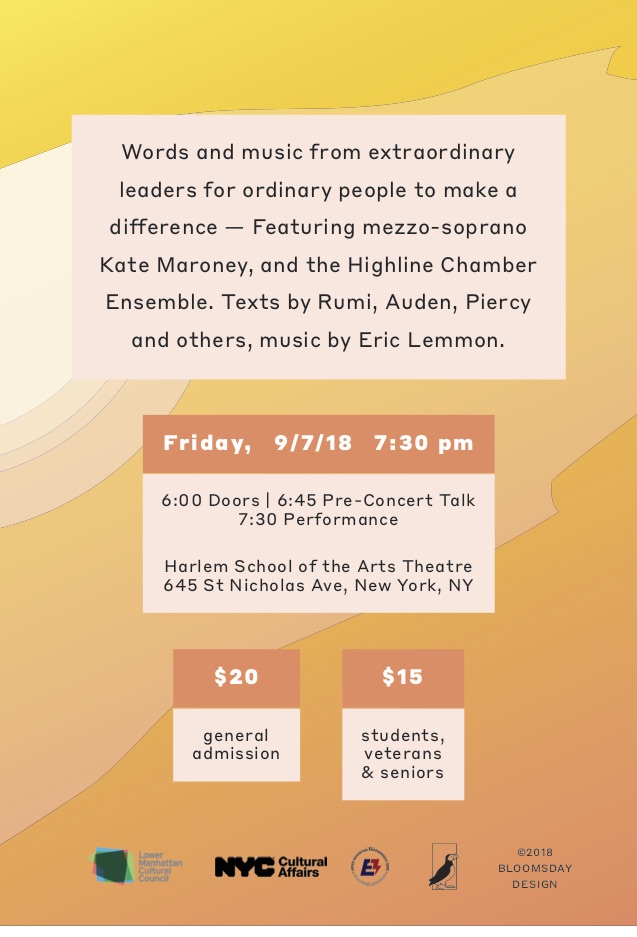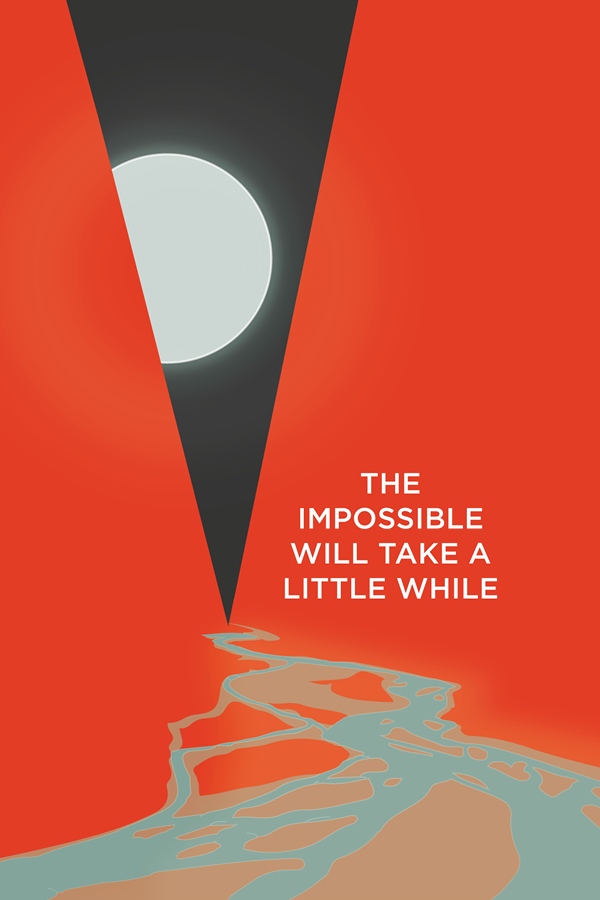
The Impossible Will Take a Little While is an oratorio based on the collection of essays and poetry by Paul Rogat Loeb. The text offers everyday people hope and insights from leaders credited with impacting their respective societies, such as Nelson Mandela and Vaclav Havel. These essays highlight the legions of unsung people and political acts that have led to social change and progress. The musical work includes poetry from the likes of W.H. Auden, Marge Piercy, Jalal al-Din Rumi and Adrienne Rich. The full scope of the musical work encompasses a broad range of characters representing the poet’s intended context and their personal voices. In between sections of poetry there are orchestral interludes that take inspiration from the essays featured in the collection. This message became especially pressing to me when a regressive, white-nationalist administration had taken power in the United States of America.
The Impossible Will Take a Little While has been made possible with funding from the Upper Manhattan Empowerment Zone Development Corporation that is administered by the Lower Manhattan Cultural Council; public funds from Creative Engagement, supported by the New York City Department of Cultural Affairs in partnership with the City Council and administered by Lower Manhattan Cultural Council; and by the Puffin Foundation Ltd. This composition was created with the support of the EtM Con Edison Composer Residencies, administered by Exploring the Metropolis.

Since writing earlier political works, e.g. “The Cure at Troy” and “All This Talk of Saving Souls”, I had shifted my focus from the exploration of political motivation to the mobilization of political forces. Accordingly, “The Impossible Will Take a Little While” does not focus on the ideology or issues the authors I have set care deeply about (although in the book they are discussed in relation to the essayists’ personal experiences). Instead, the work highlights how their eventual political success was not achieved through heroic, iconic moments, but rather the small actions of ordinary people. Such acts mobilize and give hope to others, which is the ultimate tale of political power through democratic principles.
